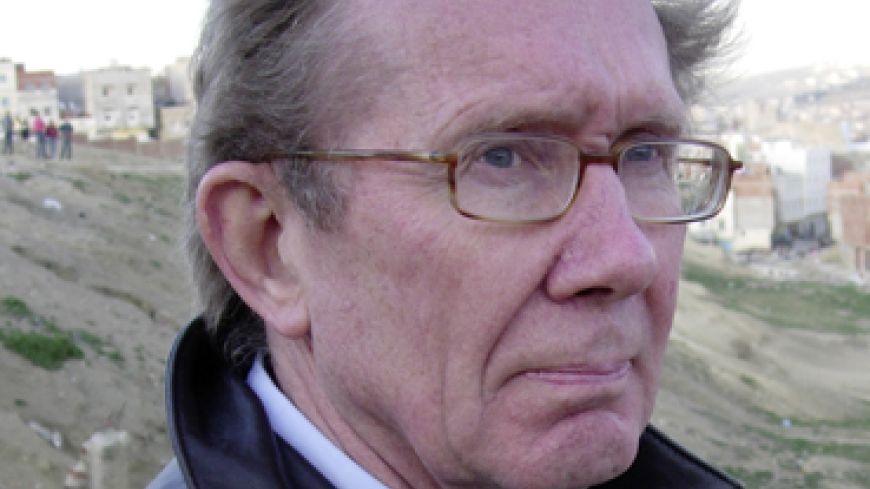
BBC reporter Peter Taylor's new book "Talking to Terrorists" sets out what it was like to come face to face with terrorists in Northern Ireland and those in other countries, including Islamic jihadis. The session was well chaired by Iain McWhirter.
Taylor's first experience of contacting terrorists was in Northern Ireland, where he had a first meeting with Martin McGuinness in the Bogside just after "Bloody Sunday". He described how, "you could almost touch the silence" in the incredible tension surrounding the occasion of the killings.
He decided to try and meet people in the area and went round very tentatively at first as he expected that no one would speak to him. However, he found that he was welcomed and invited in to houses as people wanted to tell the world what had happened. To most in the area the IRA were seen as the defenders of the people. He described how the torchlight procession in the Bogside with the thirteen bodies lying in coffins was a most moving event.
Martin McGuinness was aged twenty two when they first met. Taylor found him charming and articulate, but said his eyes could harden in a second. In spite of this McGuinness claimed he would rather be mowing his lawn or cleaning the car rather than taking part in the conflict.
In Israel he said he had met with Menachem Begin who had been responsible for the blowing up of the King David Hotel in Jerusalem but then became a respected statesman. He also met Nelson Mandela who spent so many years in jail, as we know, for his leadership of the armed wing of the African National Congress, but eventually became the first black President of South Africa. Also if one looks at Kenya, Cyprus and Aden, indeed in all countries in the grip of conflict, one sees that, in the fullness of time, nations have to start engaging with terrorists if they want to secure a settlement which will bring a lasting peace.
Peter Taylor said he had also met several young Islamic jihadis who were totally dedicated to their cause. His feeling was that, for the present, the threat of a major 9/11 type of operation has reduced because many members of the leadership have been taken out through the highly successful drone attacks, however, this is by no means an end to terrorism and more must be expected.
Asked if there is a difference between the IRA and Islamic jihadis, Taylor felt that the IRA did not set out to purposely to kill civilians and their targets were mainly military and economic, but some contractors were treated as legitimate targets. On the other hand Al Qaeda uses violence for political ends and individuals are quite prepared to blow themselves up to achieve their objective.
When asked about whether Osma bin Laden should have been killed Taylor thought this was the correct decision, but there is a question of whether torture should have been used to secure the information that led to him being identified and his death.
Should we be talking to the Taliban? Taylor said that he had asked Eliza Manningham-Buller, former Head of MI5, this question and the reply was emphatically, yes. So this is ongoing history which we should follow carefully. Therefore, opening a dialogue with the Taliban is certainly something we should now be doing in Afghanistan, otherwise no lasting peace can be secured. To find more about the history of dealing with terrorists, Taylor's book will set the scene.
Event: Tuesday 16 August, 10:30

